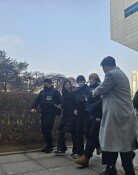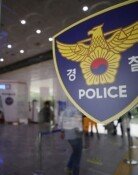Experts Speak on Late Pres. Roh`s Legacies
Experts Speak on Late Pres. Roh`s Legacies
Posted May. 24, 2009 10:09,
The late former President Roh Moo-hyun left many legacies in the country`s political history since entering politics in 1988.
Over his five-year presidency, he brought huge changes to Korean politics, society, economy and culture. Though he took his life because of a corruption scandal, he increased transparency and ethics in many areas.
He also spearheaded a move against authoritarianism that no other former presidents attempted, but was criticized for being too ideological.
○ Spearheading higher transparency and less authoritarianism
Experts were positive over Rohs efforts to reform politics. Choi Jin-woo, a political science professor at Hanyang University in Seoul, said, Though President Roh himself fell into an ethical trap, few can dispute that political, societal and economic transparency significantly increased in his presidency.
Some also say Roh contributed to the development of Korean democracy because he refrained from using government bodies as a tool to govern the country.
President Roh didn`t use powerful government entities such as prosecutors, the National Intelligence Service and the National Tax Service, said Im Hyeok-baek, a political science professor at Korea University in Seoul.
"He can be considered the first president who democratized the presidency and implemented de-authoritarianism.
Im said, however, He degraded his dignity as president because de-authoritarianism turned into de-authority due to his careless comments. Consequently, he was unable to carry out his role properly.
Social and ideological conflict continued throughout his presidency. The attempt to respect the socially marginalized and human rights should be highly regarded, said Park Hyo-jong, an ethics education professor at Seoul National University.
When he sought those values, he had to pursue national unity as well, but unfortunately, the separation of the two issues triggered social conflicts.
○ Worsening inter-Korean and Seoul-Washington ties
Roh contributed to easing tension on the Korean Peninsula by improving inter-Korean relations through a summit with North Korean leader Kim Jong Il in October 2007. Critics said, however, that he failed to cut the practice of supporting the North with no strings attached stemming from the Kim Dae-jung administration.
Kim Yong-hyeon, a North Korean studies professor at Dongguk University in Seoul, said, Roh contributed to bringing peace on the Korean Peninsula with the 2007 inter-Korean joint statement that is more specific than the 2000 joint statement.
Yoo Ho-yeol, a professor at Korea University in Seoul, said, He tried to manage the North Korean nuclear issue and gain support from the U.S. and China. But he made an excessive promise to make the inter-Korean summit successful, so he handed over too much of a burden to the next administration, which consequently deteriorated inter-Korean relations.
Some say South Korea-U.S. ties turned sour during his presidency. Kim Seong-han, a professor at the Graduate School of International Studies at Korea University, said, He tried to reflect Koreas stronger presence in the Korea-U.S. relationship, but in the process, he undervalued the importance of the alliance.
○ Undermining market principles and growth potential
Roh pursued distribution-oriented economic policy for the socially marginalized, but this brought on the bi-polarization of Korea and dropped the countrys growth engine.
Kang Seok-hun, an economics professor at Sungshin Womens University in Seoul, said, He did a good job in setting a balanced economic view by focusing on distribution rather than conventional growth-oriented policy. But he made a mistake by distorting the market by using ideological policies against market principles in the real estate market and making people hate a certain class of people.
Kim Jong-seok, an economics professor at Hongik University in Seoul, said, Though he did a great job in seeking balanced economic policies consistently, the Korean economy grew slower than the average of the prospering global economy, and decreased investment led to a drop in growth potential.
He worked to reduce illegal political funds, and collusion between large companies and politicians disappeared significantly, said Hong Ki-taek, an economics professor at ChungAng University in Seoul.
Flooding policies that undermine market functions sometimes disrupts the basic order of capitalism.
A professor who spoke on the condition of anonymity said, Though Rohs intention of balanced regional development was good, the multifunctional administrative city and innovative city policies drove up land prices while reducing efficiency.
sunshade@donga.com gaea@donga.com







